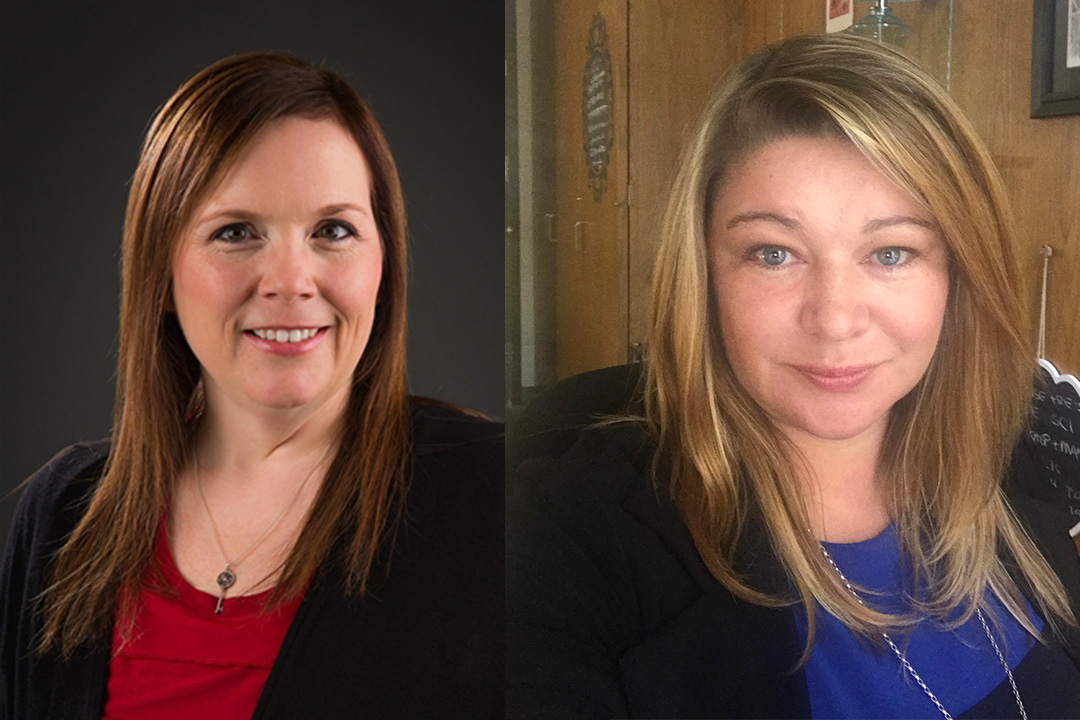
USask research teams awarded $345,000 for COVID-19 mental health projects
Two University of Saskatchewan (USask)-led research teams have been awarded a total of $345,064 in federal funding to expand the reach of innovative digital technology projects aimed at meeting mental health needs of people coping with physical distancing and isolation during the COVID-19 pandemic.
By USask Research Profile and Impact“Our innovative researchers in nursing and psychology are stepping up in a timely way to address a pressing national health issue at an unprecedented time in Canada’s history,” said USask Vice-President Research Karen Chad.
“The programs they create to remotely deliver mental health services for seniors and others at risk will not only serve Canadians at this critical time, but will be invaluable in shaping the health system to meet future challenges.”
Nursing associate professor Tracie Risling has been awarded $170,487 by the Canadian Institutes of Health Research (CIHR) to develop a customized two-way mobile phone texting process that will help people underserved by the health system gain access to mental health services—particularly online services that are emerging to address challenges arising from the pandemic.
The texting project builds upon previous research that identified digital health interventions to support people with mental health, substance abuse, and wellness needs during COVID-19, and will bridge “digital divides” through use of ubiquitous mobile phones.
“As nurses, we want to make sure our work includes a focus on issues of social justice and equity, and learn more about who is at risk of being left behind in a digital world as we see incredible advances in virtual care and digital health as part of the pandemic response,” said Risling.
At a time when a barrage of misinformation on social media —described as an “infodemic”—is adding to the mental strain of coping with pandemic-related stressors such as job loss and social isolation, text messaging from trusted health-care sources with evidence-based information is an opportunity to enhance wellness, she said.
The texting project will also use short polls to engage citizens, enabling the team to respond quickly to evolving pandemic challenges and information needs.
“While this project will begin in Saskatchewan, the collaboration of national team members, including Canada Health Infoway, means we can quickly scale up nationwide to help close the gap between the need for services and the capacity to deliver those services,” she said.
Digital engagement platform provider MEMOTEXT is a project partner, and will collaborate on message delivery, data analysis, and survey responses. Risling’s team includes co-applicants Gillian Strudwick, an independent scientist at the Centre for Addiction and Mental Health in Toronto, and Patricia Janssen, professor in University of British Columbia’s (UBC) School of Population and Public Health. Patient family advocate Tyler Moss is the other team member.
With $174,577 from CIHR, USask psychology professor Megan O’Connell’s team will expand a pilot project for older adults in Saskatchewan that employs “virtual socialization hubs” and will also extend the program into British Columbia. The hubs involve eight to 10 seniors meeting online weekly or bi-monthly on a secure Zoom videoconferencing site. Participants receive support and training in using the technology, and phone assessments take place through trained staff chatting monthly with each participant.
O’Connell’s team will also initiate a system of remotely monitoring the mental health of seniors by phone in both provinces.
Her group has already partnered with the Saskatoon Council on Aging to pilot virtual socialization hubs aimed at mitigating pandemic-related impacts of isolation on older adults. Her work with the Alzheimer’s Society of Saskatchewan to initiate online support groups for caregivers of persons with dementia has led to the creation of successful “coffee and chat” socialization hubs.
“We are taking what works and scaling that up provincewide and into B.C. over the next year,” O’Connell said. “Our goal is to mitigate mental health concerns by maintaining socialization despite physical distancing. As well, tracking mental health by phone is effective, and will help us detect illness sooner and link people with services and supports early—when they need it.”
Data from the project will position provinces to respond to mental health issues arising from physical distancing measures anticipated with future waves of COVID-19 infections, she said.
Kristen Haase, UBC assistant professor in nursing, will lead the work in B.C., and is a principal applicant along with O’Connell. Co-applicants are: assistant professor Allison Cammer of the USask College of Pharmacy and Nutrition; professor Lorraine Holtslander and associate professor Shelley Peacock, both of the USask College of Nursing; and Theodore Cosco, assistant professor of Mental Health and Aging at Simon Fraser University.

